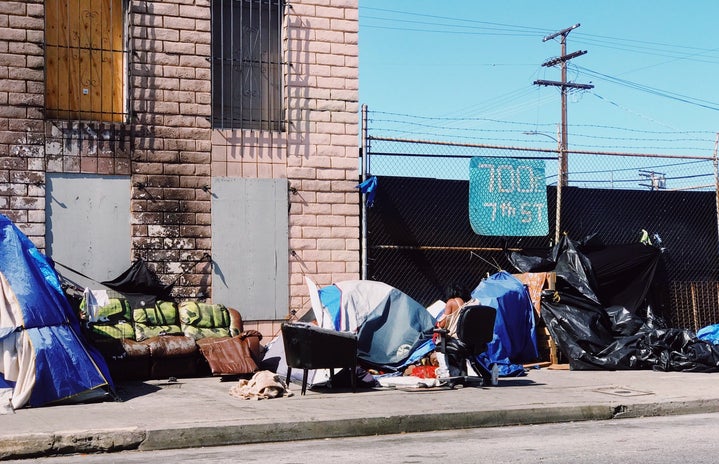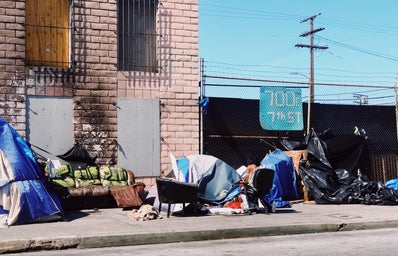When I think of Christmas I tend not to think of homelessness. For many of us Christmas is a time of joy and hope as the weather turns frostier and the nights draw in. The run-up to the festive period is framed and marked by gatherings with family and friends, eating delicious foods and opening presents. However, for thousands of young people suffering from homelessness their Christmas will be shockingly different to what many of us will get to experience.
So often we become lost in the Christmas spirit and magic, that we ignorantly forget about those who are most vulnerable and alone during this period. Youth homelessness is an issue that has penetrated our society and Christmas, a time of togetherness and celebration calls attention to this deep-seated societal problem.
Over 100,000 16–24-year-olds in the UK contact their local council every year for support with homelessness.
However, the number of young people suffering from homelessness cannot be certain as individuals who sofa-surf or squat are not counted in official figures, this is termed ‘hidden homelessness’. It has been predicted that the number of individuals facing homelessness will have increased due to the pandemic, with over three-quarters of councils in England saying they saw a rise in homelessness during the pandemic, because of cuts to jobs (Centrepoint estimated that in the period of June-August 2020, 581,000 16–24-year-olds were unemployed) and domestic violence.
The implications of not having a stable and safe place to call home has many detrimental effects on young minds and their futures, education is affected thus job prospects, mental health and self-esteem, and there is an increased risk of exploitation and abuse. Homelessness is a vicious and unforgiving cycle that is relentless, that is why the Government has to do more to support and protect young people facing homelessness and provide them with appropriate and suitable housing. In 2019-20 64% of 16–24-year-olds who were at risk of homelessness were offered support by the authority of England, however 58% of cases were not successfully prevented or dealt with.
Yet, the Government did establish the Everyone In scheme during the pandemic, which gave emergency accommodation to over 37,000 people experiencing homelessness. This demonstrates that substantial change can be implemented, and change is possible concerning the homelessness crisis. But despite the positive impact of the scheme, it simultaneously highlighted the true extent of the homelessness crisis.
The issue of homelessness is so complex and to extinguish it from our society completely is unrealistic, however it is possible that the number of young people facing homelessness can be hugely diminished and prevented. However, for this to happen great Governmental action and change must occur. In the meantime, we can all show our solidarity and support for the plethora of charities fighting for and supporting young people facing homelessness such as Centrepoint and Crisis, by donating, volunteering, as well as raising our voices and having conversations to not permit the issue of youth homelessness to fade and become a phenomenon that is accepted in our society.
Youth homelessness is an issue that we all need to be made much more aware of as well as its long-term effects, and the unjust system thousands of young people have to battle against. There is so much more to say about this issue but hopefully this has brought to your attention the need for kindness and change in our society towards its vulnerable young people.
I think that as Christmas draws closer and as we spend time with our loved ones in the warmth of our homes, we all should take a minute to think about the thousands of young individuals who are alone afraid and without a safe place to call home.
For more information:
https://centrepoint.org.uk/about-us/
https://centrepoint.org.uk/media/4773/a-year-like-no-other.pdf
https://editor.centrepoint.org.uk/media/4764/d201-strategy-03.pdf


